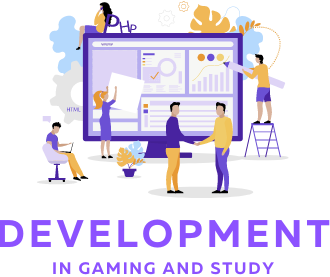The popularity of online gaming has skyrocketed in recent years, moving from a niche pastime to a global phenomenon that crosses cultural and geographical boundaries. With its immersive experiences, social interactions, and competitive dynamics, online gaming has become a cornerstone of modern entertainment. This article examines the development and impact of online gaming, looking at how it affects individuals, society, and the cultural landscape as a whole. It is possible to trace the origins of online gaming back to the early days of the internet, when simple multiplayer games served as the foundation for what would eventually become a thriving industry. Online gaming evolved into complex virtual worlds populated by millions of players as technology advanced and internet connectivity increased. From massively multiplayer online role-playing games (MMORPGs) to fast-paced shooters and https://judi77.id/ strategy games, online gaming today spans a wide range of genres and platforms. One of the defining features of online gaming is its ability to connect people from all walks of life, fostering friendships and communities that transcend geographical boundaries. Players can work together, devise plans, and form long-lasting relationships with others who share their enthusiasm for gaming through in-game chat, voice communication, and online forums. This sense of camaraderie and belonging is a central aspect of the online gaming experience, enriching gameplay and enhancing the overall enjoyment of virtual worlds.
In addition, revenues from online gaming have surpassed those from the film and music industries as a whole, making it a thriving industry in and of itself. The rise of esports has further propelled the industry into the mainstream, with professional players competing in tournaments for substantial cash prizes and millions of viewers tuning in to watch the action unfold. Gaming has become a legitimate spectator sport thanks to esports competitions, which attract large audiences and demonstrate the skill, strategy, and teamwork necessary to compete at the highest level. However, alongside its many benefits, online gaming also presents certain challenges and concerns. If not managed properly, excessive gaming can result in addiction, social isolation, and other negative outcomes. Additionally, the anonymity of online interactions can occasionally encourage harmful behavior, such as cyberbullying and harassment. It is essential for players, parents, and communities to be aware of these risks and take proactive steps to promote healthy gaming habits and create positive online environments that prioritize respect and inclusivity.
In conclusion, online gaming has transformed modern entertainment by providing players worldwide with immersive experiences, social connections, and competitive challenges. Technology advancements, shifts in consumer behavior, and the universal appeal of interactive digital experiences have all contributed to its rise from a niche pastime to a global industry. Online gaming will undoubtedly continue to be a significant part of contemporary culture for many years to come as the industry continues to develop and grow.
